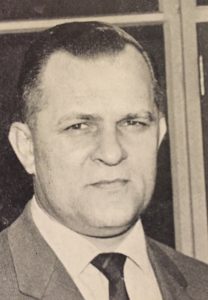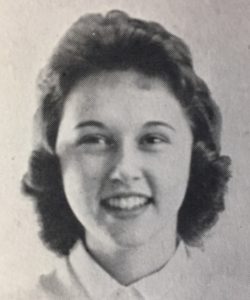When Dad went broke mining coal in Altoona, AL, in 1953, he did not declare bankruptcy. Instead, he moved to Charlotte and sent money back to Alabama for years, slowly paying off debts.
Not declaring bankruptcy enabled him to hang on to Dixie Dew Syrup, the financial life raft that saved our family. I was 11 years old when he moved my second mother; my brother, Dave; and me, to Charlotte and began making syrup full time.
In the mid-1950’s Dad drew a salary of $100 a week — about $50,000 a year in 2019 dollars — but a part of his salary, how much I was never told, went toward paying off coal mining debts.
In a letter Dad wrote Brother Dave about 1959, he said: “Now bear in mind that when we came up to Charlotte some six or seven years ago we owed money to every living soul that would credit us. Your mother sold Tupperware, gave lectures [on flower arranging, she was a flower judge] and sewed for her neighbors to help pay off these obligations.”
There was no money to pay a dentist, that’s for sure. In 1956, when I was 14 and in the ninth grade, I had a cavity between my two front teeth visible for miles, I thought, that went unrepaired for more than a year.
I delivered the afternoon paper, The Charlotte News, when I was 12 and 13 years old and the morning paper, The Charlotte Observer, when I was in high school. When I was 13 or 14 I started working summers for Dad for 50 cents an hour [$4.65 an hour in 2019 dollars], making Dixie Dew and, later, clothes hangers. But I didn’t make enough in junior high school to get my teeth fixed.
So in my early teens I got a taste of poor. I didn’t like it very much.
***I had one pair of good jeans. I would wear them for two or three days, wash them out at night, get up early the next morning, iron them dry, and wear them to school again.
***In the eighth grade I played football at the Optimist Club, a club run by Charlotte policemen to keep boys from North Charlotte off the streets and out of trouble. As a reward, Sgt. Black took four of us who had participated in a speaking contest on an overnight trip to Winston-Salem. I carried a suitcase because, for the first time, I was going to stay in a hotel but I was careful not to let the others see the clothes in my suitcase — one pair of socks, one pair of underwear and a t-shirt.
***Mother gave me money to buy lunch at school, Hawthorne Junior High, but there was no money for haircuts. So I would skip lunch and save up my lunch money until I had enough to pay for a haircut.
In some ways, it didn’t matter. Hawthorne drew most of its students from North Charlotte and Belmont, poor white sections. A lot of other kids were in pretty much the same boat.
NOTE: Not counting trips to visit kinfolk, my family went on one vacation when I was growing up — a weekend at the beach. That was not entirely due to a lack of money, however. My father had no hobbies. He did not play golf or tennis. Or collect anything. He did not hike or camp. He did not swim, or fish, or go on picnics. He did not take us out to the ballgame. He worked.
Coming Friday: The Ring

